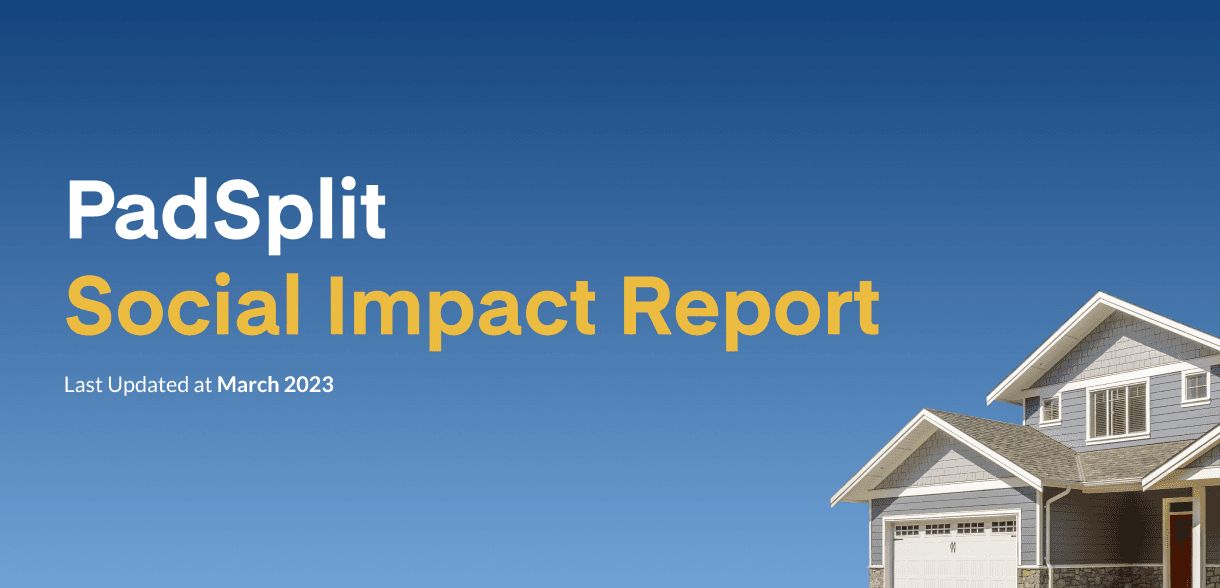Moving out of your parents’ house is an exciting milestone, but it can also feel overwhelming, especially if you’re navigating financial challenges for the first time. Whether you’re saving for a future home or craving more independence, making smart financial choices is essential for a smooth transition.
If you’re living with family, you’re in a great position to build a solid foundation for financial independence. Let’s explore some practical strategies to make your move-out journey easier—without breaking the bank.
Before you get started on your big move, don’t forget to grab our handy saveable checklist at the bottom of this post. It’ll help ensure you’re fully prepared for each step of the process.
1. Create an emergency fund
The first step to independence is building a safety net. Aim to save enough to cover three to six months of expenses to protect yourself from unexpected costs. Start by saving at least $1,000 to cover minor emergencies, then build toward covering multiple months of living expenses. Setting up automatic transfers from your paycheck to a separate savings account can help make this goal more manageable. A solid emergency fund will give you peace of mind and confidence as you transition to living independently.
Having this cushion will allow you to handle unexpected expenses, like car repairs or medical bills, without dipping into your savings for rent or other essentials. For more guidance on emergency funds, check out this helpful Emergency Fund Calculator.
2. Develop a realistic budget
Creating a realistic budget is critical when planning to move out. Research the costs of rent, utilities, groceries, and other essentials in your target area. Consider using budgeting frameworks like the 50/30/20 rule: 50% of your income for needs, 30% for wants, and 20% for savings and debt repayment. Apps like YNAB or Rocket Money can help you track your spending and find areas where you can save.
Planning ahead ensures you know exactly what you can afford, helping you avoid financial stress down the road. It will also allow you to allocate funds toward savings goals while enjoying the flexibility of independent living. For more insights into budgeting, check out NerdWallet’s Budgeting Guide.
3. Maximize your savings
To boost your savings, try a “no-spend challenge,” where you only buy essentials for a set period. This can help you save more quickly and learn to prioritize needs over wants. You can also find free activities like hiking, attending local community events, or spending time with friends at home to cut down on entertainment costs.
By being mindful of your spending now, you can accelerate your savings and feel more prepared for your move. Consider using apps like TooGoodToGo for discounted food or Meetup to find free or low-cost social events.
4. Set a clear move-out goal
Having a specific goal and timeline for moving out can help you stay on track. Break your goal into smaller steps, like saving for a security deposit or researching affordable housing options. Celebrate your progress—whether you reach a savings milestone or successfully narrow down your potential neighborhoods.
Setting these milestones will keep you motivated and make the move-out process feel more manageable.
5. Explore affordable housing options.
Finding affordable housing can be one of the biggest challenges of moving out. Instead of committing to an expensive apartment lease, consider alternative housing options like coliving. Platforms like PadSplit, the largest coliving marketplace, offer affordable and flexible housing solutions that make it easier to live independently without sacrificing savings goals.
PadSplit provides private furnished rooms with utilities included at an affordable rate, allowing you to save money and avoid large deposits or long-term leases. You’ll enjoy more independence while still being able to work toward long-term goals like buying a home. Explore affordable PadSplit options here.
Another bonus? PadSplit’s supportive community of like-minded individuals can make your transition into independent living easier and more enjoyable. You’ll meet people from different backgrounds, all while living in a shared space that prioritizes respect, safety, and affordability.
How to get started with PadSplit today
- Browse available rooms here.
- Complete the quick application process in just a few minutes.
- Move into your private, affordable room in as little as 48 hours! Get started today.
6. Increase your income
Looking for ways to boost your income can also help you reach your savings goals faster. Whether you take on a side gig, do freelance work, or even ask for a raise, extra income will speed up your ability to move out. Platforms like Upwork or TaskRabbit are great places to find additional opportunities.
Increasing your income not only helps you save but also gives you new skills and experiences that could benefit your future career.
7. Develop DIY skills
Learning basic DIY skills can save you money when living on your own. Whether it’s cooking meals at home, fixing minor repairs, or maintaining your car, being self-sufficient reduces the need for professional help and cuts down on expenses.
There are countless online tutorials that can teach you the basics. Learning these skills now will help you feel more confident and financially prepared when living independently.
8. Build your credit score
A strong credit score is essential when it comes to renting or buying a home. If you’re just starting to build credit, consider getting a secured credit card and keeping your credit utilization below 30%. Always pay off your balance in full and on time.
PadSplit is an ideal option for those looking to build credit. PadSplit reports your weekly on-time payments to the credit bureaus, helping you build a strong credit history without needing a minimum credit score to move in. This can help you qualify for better loan rates, lower insurance premiums, and reduced deposits in the future.
9. Prepare for hidden costs
Moving out comes with extra expenses like furniture, renters insurance, and moving costs. Start early by making a checklist of essential items and look for second-hand furniture or sales to save money. Planning for these hidden costs now ensures you’ll be better prepared when it’s time to move.
According to NerdWallet, the average move-in cost for traditional apartments ranges from $2,350 to $6,950, which includes deposits and upfront rent. In contrast, PadSplit rooms start at just $119 per week with no large deposit required.
10. Set boundaries and expectations
Before moving out, have an open discussion with your family about your plans. Set clear boundaries and expectations around how your relationship might change, how often you’ll visit, or how you’ll manage future family time. This will make the transition smoother for everyone.
Embrace your newfound independence
Moving out of your parents’ house is a big step toward independence, but it doesn’t have to be overwhelming. By planning ahead, budgeting carefully, and exploring affordable coliving options like PadSplit, you can enjoy the freedom of independent living while maintaining financial stability.
PadSplit offers flexible living arrangements, community support, and the opportunity to save for your future. Whether you’re looking to gain financial independence or simply want a more affordable housing option, PadSplit is the perfect solution to help you transition to living on your own. With thoughtful planning and a solid financial foundation, you’ll be ready for this exciting new chapter in your life.
Moving out FAQs
How do I know when I’m financially ready to move out?
You’re financially ready when you have savings for upfront costs (like a security deposit) and an emergency fund covering three to six months of living expenses. Additionally, ensure your budget can comfortably handle ongoing rent and living costs. Tools like the PadSplit savings calculator can help you assess your readiness.
What are the hidden costs of moving out?
Hidden costs include furniture, renters insurance, moving expenses, and setup fees for utilities. With PadSplit, utilities are included, and many rooms are furnished, minimizing these costs. Start early by shopping second-hand or during sales for any additional items you’ll need.
How can I build my credit when I move out?
Pay bills on time and keep your credit utilization low. PadSplit helps by reporting your weekly payments to credit bureaus, so each on-time payment boosts your credit without needing a credit card or loan.
What if I’m not ready for a long-term lease?
PadSplit offers week-to-week rental options, giving you the flexibility to move when you’re ready without being tied to a long-term lease.
Save this move-out checklist!
To make your move-out process even smoother, save our Move-Out Checklist to keep track of your tasks and avoid missing any critical steps. From setting a budget to finding the perfect PadSplit room, this checklist will help you stay organized and prepared!



